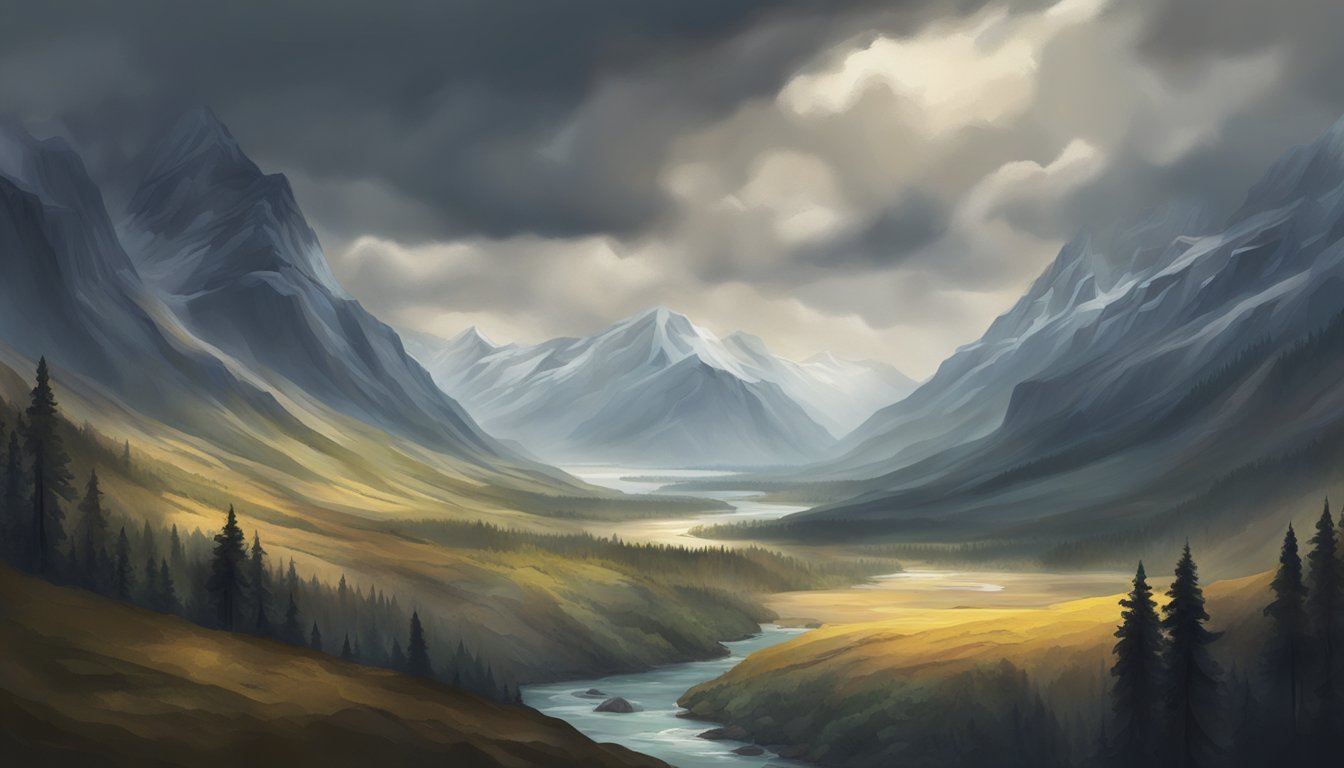Yellowstone has captivated audiences since its debut in 2018, becoming one of the most popular shows on television. The series follows the Dutton family, led by Kevin Costner’s John Dutton, as they fight to maintain control of their vast cattle ranch in Montana. With its compelling storylines, stunning cinematography, and stellar performances, Yellowstone has consistently ranked as the #1 show on cable for five consecutive years.
Critics and viewers alike praise the show’s high production values and authentic portrayal of modern Western life. The acting ensemble, including Costner, Kelly Reilly, and Luke Grimes, brings depth and nuance to their complex characters. Yellowstone’s success has spawned multiple spin-off series, including the prequel 1923 starring Harrison Ford and Helen Mirren.
While some seasons have received stronger reviews than others, Yellowstone maintains a dedicated fanbase drawn to its exploration of family dynamics, political intrigue, and the conflicts between landowners, developers, and Native American tribes. The show’s blend of drama, action, and breathtaking landscapes continues to attract new viewers and keep longtime fans eagerly anticipating each new episode.
Overview Of ‘Yellowstone’
‘Yellowstone’ is a neo-Western drama series created by Taylor Sheridan. The show premiered on Paramount Network in 2018 and quickly gained a devoted following.
Set in Montana, the series centers on the Dutton family, led by patriarch John Dutton, portrayed by Kevin Costner. The Duttons own the largest contiguous ranch in the United States.
The show explores themes of power, legacy, and conflict against the backdrop of the American West. It delves into the challenges faced by the Dutton family as they fight to maintain control of their vast landholdings.
‘Yellowstone’ blends elements of traditional Westerns with contemporary issues. It tackles topics such as land development, Native American rights, and political corruption.
The series has been praised for its stunning cinematography, capturing the rugged beauty of Montana’s landscapes. It features intense performances from its ensemble cast, with Kevin Costner’s portrayal of John Dutton receiving particular acclaim.
‘Yellowstone’ has spawned multiple spin-offs and prequels, expanding its narrative universe. These additional series explore different time periods and branches of the Dutton family tree.
The show’s popularity has led to a significant cultural impact, sparking renewed interest in Western-themed entertainment and fashion.
The Dutton Family Saga

The Dutton family’s multi-generational story forms the heart of the Yellowstone series. Their struggles to maintain control of their vast Montana ranch unfold against a backdrop of political intrigue, family conflicts, and threats from developers and other external forces.
Patriarch John Dutton’s Role
John Dutton, portrayed by Kevin Costner, leads the Dutton family with unwavering determination. As the owner of the largest contiguous ranch in the United States, he faces constant challenges to his land and way of life. John’s tough exterior masks a deep love for his family and a fierce commitment to preserving their legacy.
His leadership style often puts him at odds with modern sensibilities, as he employs both legal and extralegal means to protect the Dutton Ranch. This approach creates tension within his family and with outside entities, including the nearby Native American reservation and ambitious developers.
John’s character embodies the clash between tradition and progress in the American West, making him a compelling central figure in the Yellowstone saga.
Beth Dutton’s Complex Character
Beth Dutton, played by Kelly Reilly, stands out as one of Yellowstone’s most dynamic characters. Her sharp intellect and ruthless business acumen make her a formidable ally to her father, John Dutton.
Beth’s complex personality stems from a traumatic past, which fuels her fierce loyalty to the ranch and her family. Her relationship with Rip Wheeler adds depth to her character, revealing a softer side beneath her tough exterior.
As the series progresses, Beth’s strategic moves in the corporate world become crucial in the fight to preserve the Dutton legacy. Her confrontations with developers and rival business interests showcase her cunning and determination.
Kayce and Monica’s Dynamic
Kayce Dutton, portrayed by Luke Grimes, and his wife Monica, represent the intersection of two worlds. As John Dutton’s youngest son and a former Navy SEAL, Kayce struggles to balance his loyalty to the ranch with his commitment to Monica and their son.
Monica, a Native American teacher from the nearby reservation, brings a different perspective to the Dutton family dynamics. Their relationship faces numerous challenges, including cultural differences and the violent realities of life on and around the Dutton Ranch.
Their story arc explores themes of identity, family loyalty, and the difficulties of bridging cultural divides in modern Montana.
The Rise of Jamie Dutton
Jamie Dutton, played by Wes Bentley, embodies the internal conflicts within the Dutton family. As an adopted son and skilled attorney, Jamie’s journey is marked by a constant search for approval and a place within the family hierarchy.
His political ambitions often clash with the ranch’s interests, creating tension with his father and siblings. Jamie’s complex relationship with Beth adds another layer of drama to the family dynamics.
As the series progresses, revelations about Jamie’s past and his decisions have far-reaching consequences for the entire Dutton clan, making him a pivotal character in the unfolding saga.
Rip’s Loyalty and Toughness
Rip Wheeler, portrayed by Cole Hauser, is the Dutton Ranch’s loyal foreman and Beth’s love interest. His unwavering dedication to John Dutton and the ranch stems from a troubled past and the second chance he was given as a young man.
Rip’s tough exterior and willingness to do whatever it takes to protect the Duttons make him a key player in the ranch’s ongoing conflicts. His methods are often brutal, but his loyalty is unquestionable.
His evolving relationship with Beth adds emotional depth to his character, revealing a softer side beneath his rough cowboy exterior. Rip’s presence on the ranch provides a stable force amidst the chaos that often surrounds the Dutton family.
Themes and Storytelling

Yellowstone weaves a complex tapestry of conflicts, alliances, and moral dilemmas set against the backdrop of the modern American West. The series explores enduring themes of land ownership, family legacy, and cultural clashes.
Struggle for Land and Legacy
The Dutton family’s fight to maintain control of their vast Montana ranch forms the core of Yellowstone’s narrative. John Dutton, the family patriarch, faces constant threats from developers, Market Equities, and the neighboring Broken Rock Indian Reservation. His determination to preserve his legacy drives many of the show’s key conflicts.
Land disputes often escalate into violent confrontations, highlighting the high stakes involved. The series portrays the ranch as more than just property – it’s a symbol of the Dutton family’s identity and way of life.
The struggle extends beyond the Duttons, encompassing other ranchers, Native Americans, and corporate interests. Each group’s claim to the land is rooted in different cultural and historical contexts, adding depth to the overarching conflict.
Conflict and Alliances
Yellowstone thrives on a web of shifting alliances and intense rivalries. The Dutton family’s internal dynamics are complex, with siblings vying for their father’s approval and fighting over the ranch’s future.
External threats like the Beck brothers and Roarke Morris force the Duttons to form uneasy alliances with former enemies. These partnerships often blur moral lines, raising questions about the cost of survival in a cutthroat world.
Thomas Rainwater, leader of the Broken Rock Reservation, alternates between adversary and ally to the Duttons. His character embodies the tension between preserving Native American culture and adapting to modern realities.
The series explores how violence shapes relationships and power structures. Characters must navigate a landscape where trust is scarce and loyalty is constantly tested.
Western Tradition and Modern Challenges
Yellowstone reimagines the Western genre for contemporary audiences. It blends traditional elements like cattle drives and rodeos with modern issues such as land development and corporate takeovers.
The series juxtaposes the romanticized image of the American cowboy against the harsh realities of running a ranch in the 21st century. John Dutton’s struggle to maintain his way of life in the face of encroaching modernity resonates with viewers nostalgic for a simpler past.
Environmental concerns play a significant role, with conflicts arising over the nearby national park and natural resources. The show explores the tension between economic development and conservation efforts.
Yellowstone doesn’t shy away from addressing social issues affecting the region, including poverty on the reservation and the impact of tourism on local communities. These themes ground the series in current realities while honoring the Western tradition.
Seasonal Breakdown and Evolution

Yellowstone’s narrative unfolds across five seasons, each adding layers to the Dutton family saga. The show’s evolution mirrors the changing Montana landscape, with storylines growing more complex and characters facing new challenges.
Beginning of a Dynasty: Season 1
Season 1 introduces the Dutton family and their vast ranch. John Dutton, played by Kevin Costner, emerges as the patriarch fighting to protect his land. The initial episodes establish key conflicts, including land disputes with the neighboring Native American reservation and developers eyeing Dutton property.
Family dynamics take center stage as John’s children – Beth, Jamie, and Kayce – navigate their roles within the ranch. Beth’s sharp business acumen and Jamie’s legal expertise become crucial assets. Kayce’s return to the fold adds tension, especially in his relationship with his Native American wife, Monica.
The season sets up long-term storylines, including the mysterious death of John’s oldest son and Beth’s complex relationship with Rip Wheeler, the ranch foreman.
Rising Tensions: Season 2
Season 2 intensifies the threats to Dutton land. The Beck brothers emerge as formidable adversaries, pushing the family to its limits. John forms an uneasy alliance with Thomas Rainwater, the reservation leader, to combat common enemies.
Character development deepens, particularly for Beth and Jamie. Beth’s ruthless business tactics come to the fore, while Jamie’s political ambitions create rifts within the family. Kayce takes on a larger role in ranch operations, showcasing his leadership potential.
The season culminates in a harrowing kidnapping plot, forcing the Duttons to band together. This crisis strengthens family bonds but also exposes vulnerabilities, setting the stage for future conflicts.
Explosive Outcomes: Season 3
Season 3 introduces new threats in the form of Market Equities, a corporation intent on developing Dutton land. Beth faces off against Willa Hayes and Roarke Morris, testing her business acumen. Jamie’s discovery about his adoption leads to a dramatic confrontation with John, altering family dynamics.
Kayce’s role as Livestock Commissioner puts him in the political spotlight. His relationship with Monica faces new challenges as they balance family life with ranch duties. Rip and Beth’s romance deepens, providing a softer counterpoint to the escalating external conflicts.
The season ends with a shocking series of coordinated attacks on the Duttons, leaving multiple lives hanging in the balance. This cliffhanger marks a turning point in the series, raising the stakes for all characters.
Defending the Dutton Legacy: Season 4
Season 4 opens with the aftermath of the attacks, as the Duttons fight for survival and seek revenge. Jamie’s biological father, Garrett Randall, emerges as a key player in the family’s troubles. Beth’s vendetta against those responsible for the attacks showcases her unwavering loyalty to the family.
Kayce undergoes a spiritual journey, deepening his connection to his Native American heritage. This personal growth impacts his roles as a father, husband, and Dutton. Rip takes on greater responsibility at the ranch, solidifying his position within the family structure.
Political maneuverings intensify as John considers running for governor. This decision ripples through the family, affecting alliances and creating new enemies.
The Future and Uncertainty: Season 5
Season 5 sees John Dutton as governor, shifting the power dynamics within Montana. His new role creates both opportunities and challenges for the ranch. Beth takes on a more prominent role in managing family affairs, while Jamie navigates a complex web of loyalties.
The threat from Market Equities persists, with new players entering the fray. Environmental concerns become a central issue, pitting development against conservation. Kayce and Monica face personal trials that test their resilience and commitment to the Dutton way of life.
As the series progresses, the future of the Yellowstone ranch hangs in the balance. Long-standing alliances are tested, and new conflicts emerge, keeping viewers engaged with the Dutton family’s ongoing struggle to preserve their legacy.
Related Media and Spinoffs
The Yellowstone universe has expanded beyond the original series, delving into different time periods and exploring new characters. These spinoffs offer fans additional ways to engage with the Dutton family saga.
Prequel Series: ‘1883’
‘1883’ takes viewers back to the roots of the Dutton family’s journey. Set in the late 19th century, it follows James and Margaret Dutton as they embark on a perilous trek from Texas to Montana. The series stars Tim McGraw and Faith Hill, bringing star power to this gritty Western tale.
‘1883’ provides crucial backstory, showing the hardships faced by the Dutton ancestors. It explores themes of survival, family, and the American frontier. The show received praise for its production values and performances.
Teasing the Origins: ‘1923’
‘1923’ bridges the gap between ‘1883’ and the modern-day Yellowstone. This prequel stars Harrison Ford and Helen Mirren as Jacob and Cara Dutton. Set against the backdrop of Prohibition and the Great Depression, it showcases another pivotal era for the Dutton family.
The series delves into the challenges of the early 20th century, including drought, lawlessness, and economic hardship. ‘1923’ expands on the family’s history, revealing how they consolidated their power and influence in Montana.
Expansion with ‘6666’
‘6666’ shifts focus from the Duttons to another legendary ranch. This spinoff is set in present-day Texas at the real-life 6666 Ranch. It promises to showcase the inner workings of a modern cattle operation.
The series aims to highlight the rich traditions of ranching in America. ‘6666’ is expected to feature characters from the main Yellowstone series, creating a connected universe. This spinoff offers a fresh perspective on the ranching lifestyle, expanding the franchise beyond Montana.
Cultural Impact and Reception

Yellowstone has become a cultural phenomenon since its debut on Paramount Network in 2018. The neo-Western drama series created by Taylor Sheridan has captivated audiences across the United States.
The show’s popularity has led to record-breaking viewership numbers, cementing its place in contemporary television history. Yellowstone’s success has revitalized interest in the Western genre, inspiring a new wave of productions set in the American West.
Beyond entertainment, Yellowstone has influenced various aspects of American life. The series has sparked fashion trends, with viewers emulating the characters’ rugged, Western-inspired style.
Tourism to Montana has seen a significant boost, as fans seek to experience the breathtaking landscapes featured in the show. This influx of visitors has had both positive and negative impacts on local communities.
Yellowstone’s exploration of themes such as power dynamics, family loyalty, and land ownership has resonated deeply with audiences. The show has sparked discussions about American identity and the changing face of the rural West.
The series’ impact extends to production trends in television. More shows are now filming on location to capture authentic landscapes, following Yellowstone’s successful model.
Yellowstone’s cultural significance is further evidenced by its passionate fan base. Online communities and social media discussions surrounding the show continue to grow, demonstrating its lasting impact on popular culture.
Audience Engagement and Platforms

Yellowstone has captivated viewers across cable and streaming platforms. The series has seen remarkable growth in audience engagement and social media activity with each new season.
Following the Duttons on Cable and Streaming
Yellowstone airs on the Paramount Network, drawing massive live viewership. The series finale attracted 11.4 million viewers across Paramount Network and CMT. This marked a series high for live viewership.
Streaming has expanded the show’s reach. Peacock hosts past seasons, making it easy for new fans to catch up. The streaming platform has benefited significantly from Yellowstone’s popularity. Between January and August 2024, Yellowstone was the second-biggest contributor to Peacock’s subscriber growth.
Social media engagement has surged. The second half of season 5 saw views increase by 103% and engagement rise by 68% compared to previous seasons. The series finale generated 575 million views and 22 million engagements on social platforms.
Privacy and Viewing Habits
Streaming services like Peacock collect data on viewing habits. This information helps platforms understand audience preferences and tailor recommendations. Users can review privacy policies to learn how their data is used.
Paramount and other networks use viewership data to make programming decisions. High engagement numbers for Yellowstone have likely influenced the development of spin-off series. Viewers concerned about privacy can adjust settings or opt for traditional cable viewing.
Conclusion

Yellowstone has solidified its place as a standout drama series. Taylor Sheridan‘s creation offers a compelling blend of family conflict and ranch life against the backdrop of Montana’s rugged landscape.
The show’s strengths lie in its complex characters and intricate plotlines. Kevin Costner’s portrayal of John Dutton anchors the series with gravitas and authenticity.
Yellowstone’s exploration of power dynamics, both within the Dutton family and in their struggles against external forces, provides depth and keeps viewers engaged. The series doesn’t shy away from moral ambiguity, presenting characters in shades of gray rather than black and white.
While the pacing can be uneven at times, Yellowstone’s stunning visuals and strong performances consistently deliver. The show’s ability to weave together personal drama with larger themes of land rights and cultural preservation sets it apart.
Ultimately, Yellowstone’s success lies in its ability to transport viewers to a world both familiar and foreign. It offers a unique perspective on modern American life, filtered through the lens of a traditional Western.



